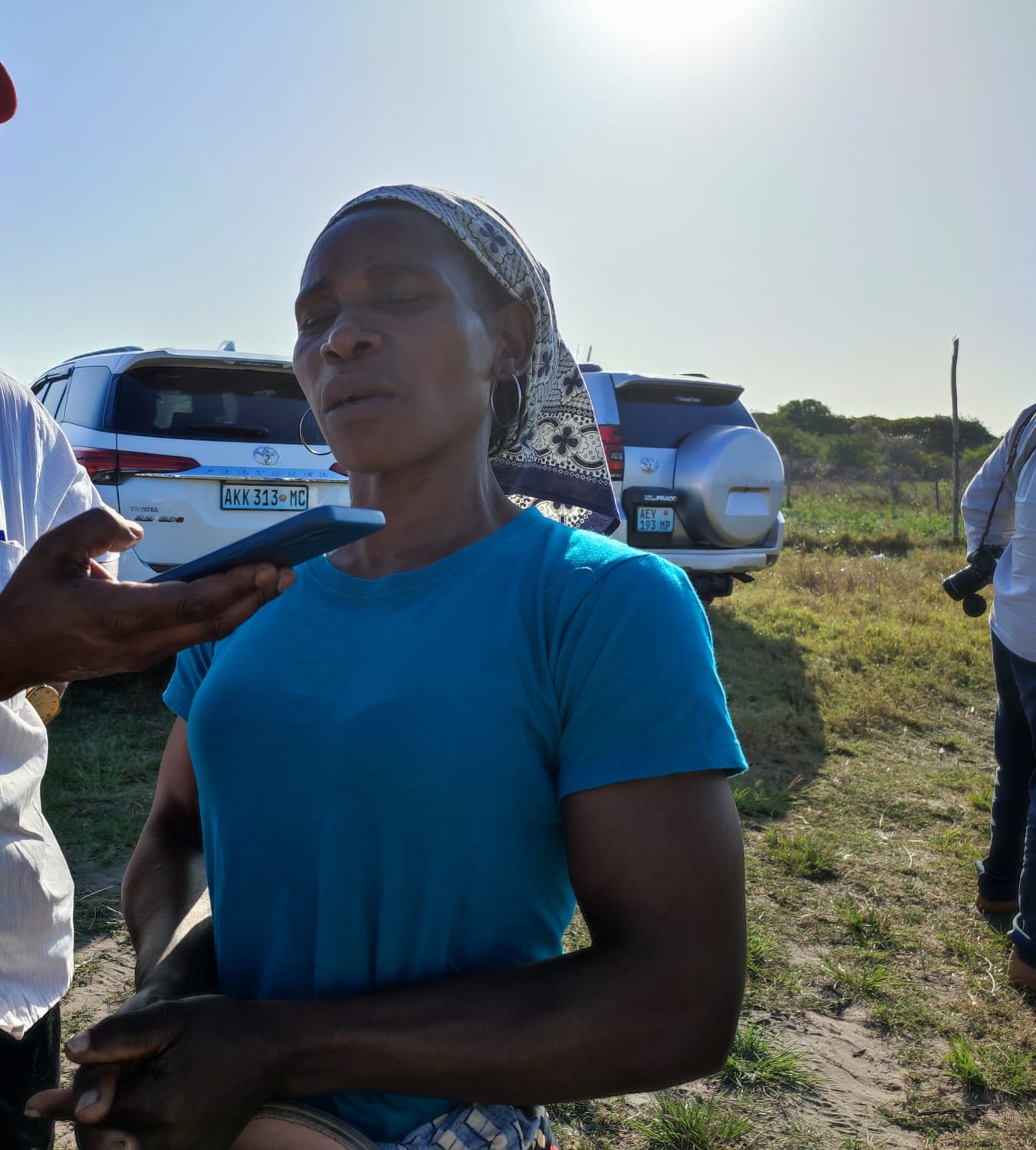Sustainable agriculture in Mozambique’s Maputo National Park
Lettuce, peppers and honey among the crops supporting conservation-compatible livelihoods

By Omardine Omar for Integrity Magazine
When our reporter visited Maputo National Park (PNM), at first we expected to observe the elephants that brighten this biodiversity-rich conservation area.
In a team with different media specialists and conservation technicians, we travelled to Guengo, in Matutuine, in the province of Maputo.
On site, we came across some of the local residents, eager to talk and show the activities they have developed under the supervision of the park management. In the group was one woman, calm and super motivated.
Teresa Sibia, widowed since 2008 and mother of four children, three boys and a girl, is the president of the Npfuka Guengo Association, “Acorda Guengo’’, where she leads a group of more than 20 people who are dedicated to the cultivation of vegetables such as lettuce, onion and pepper, as well as the chilli pepper.
These vegetables are then sold to certain markets, including pharmaceutical companies in South Africa, which provides income, thus allowing a certain social stability and commitment to conservation.
In Guengo, Teresa Sibia introduced us to the mini-factory for honey, which produces up to 25 litres of honey, as well as a centre for learning and maintaining hives, where residents are taught how to produce honey and take care of bees.
Here we found Inoque Chande, 29, who is in charge of the factory and who explained the work being done, which involves monitoring the bees and their production time, which takes place in two periods of the year.
With the work developed by the Npfuka Guengo Association, the families residing inside Maputo National Park assume a great commitment to the conservation of the wildlife that exists there, participating in the production of a diversified food chain that produces tons of vegetables through modern production techniques. In these last five years, this work has allowed Teresa Sibia to become the biggest producer in Guengo, one that already some of the children dieddue to the human-animal conflict.
“I lost my husband in 2008 and at the time I didn’t have a livelihood activity, so a few years later, this project started and I embrace it together with 12 local women, it was from here that we started to earn money that allowed me to finish my home and make my children study,” said Teresa.
But even so, with people like Teresa Sibia, children and teenagers living in Guengo and surroundings who believe that it is possible to live together with animals and still be happy.
The history of the space that today bears the name of Maputo National Park (PNM), which is located in the Matutuíne district, with the Indian Ocean as its eastern limit, Maputo Bay to the north, to the west the Maputo and Futi rivers, and to the south the border with South Africa.
Historical data indicate that it all started in 1932 when a group of conservationists decided to install a quota, however due to the hunting issue, through the legislative decree number 994, of July 23, 1960 the Maputo Special Reserve was created and there was a readaptation of the space that covers more than 104 thousand hectares, but this would only be possible in 2009 when the space gained another dimension.
In 2011, it started to be considered a futi corridor and in 2019 it started to include a range of Environmental Conservation Areas, with the seal of Maputo Special Reserve until 2021, which rose to the category of Maputo National Park.
Maputo National Park has a diversity of animal species. Updated data indicate that the space is home to more than 5,300 animals of different species that have been constantly reintroduced.
However, in addition to the scenic beauty that the Park presents, the fact is that around 130 families live within the PNM and who develop different activities for their self-sustainability and for the materialization of their livelihoods, among the activities are agriculture and honey production. Already around the PNM live 24 communities.
According to Rodolfo Cumbane, Conservation Officer of the PNM, in terms of investments for the communities that since 2006 have been receiving several financings that have already exceeded three million USD, where local children benefit from scholarships and support, whose currently there are 72 trainees in different areas, 18 scholarship holders and secondary school students. These investments aim to transform the lives of families that previously lived by hunting.
Day-to-day life at the PNM is not only made up of good issues, but also of some unavoidable aspects, as was the case with the loss of life of six inspectors in the last 10 years, as revealed by Fernando Artur Manjor, head of operations at the PNM , one of the best rangers in Mozambique, who leads a group of more than 30 rangers who recently resisted an extortion attempt by a local businessman found 600 meters from the Guengo fence, hunting animals and with a gun containing five rounds of ammunition.
In addition to the cultivation of vegetables, among the four communities residing within the PNM, some are dedicated to cutting the Jungo (Tsolobane and Muvukoza) and the others to catching crab (Buíngane and Liundo).
It should be noted that in terms of tourism, the PNM offers a variety of options, including group or guided safaris, where you can come across animals such as elephants, giraffes, zebras, among others.
This article is reproduced here as part of the African Conservation Journalism Programme, funded in Angola, Botswana, Mozambique, and Zimbabwe by USAID’s VukaNow: Activity. Implemented by the international conservation organization Space for Giants, it aims to expand the reach of conservation and environmental journalism in Africa, and bring more African voices into the international conservation debate. Written articles from the Mozambican and Angolan cohorts are translated from Portuguese. Broadcast stories remain in the original language.
Read the original story here

Join our commenting forum
Join thought-provoking conversations, follow other Independent readers and see their replies